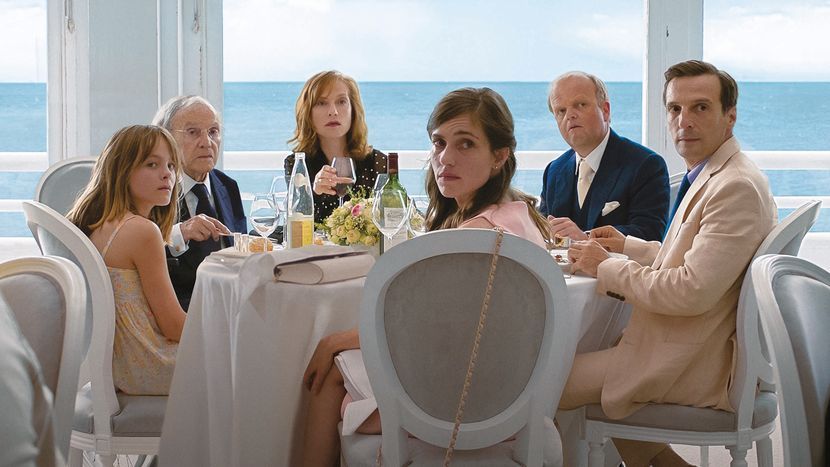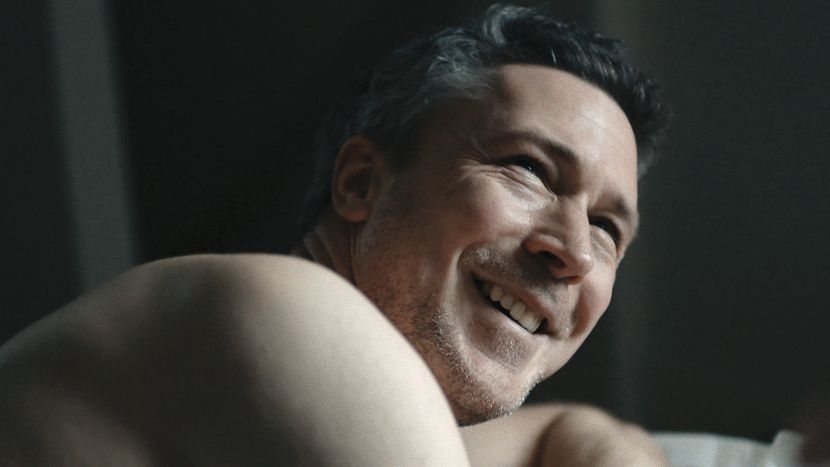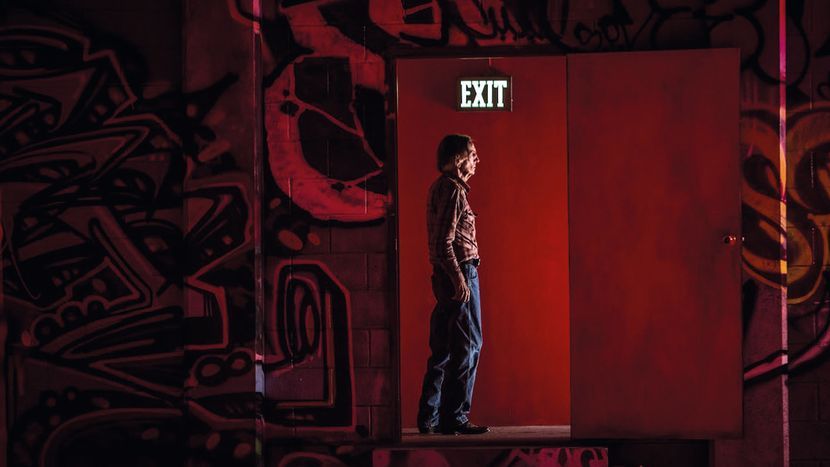Happy End – BFI London Film Festival Review

For Michael Haneke to title a film Happy End is a surprise. Between Funny Games, Amour and The White Ribbon, the bland term of happy cannot be applied. Nevertheless, Happy End could be paired with Amour in their death with dignity themes and the actors Isabelle Huppert and Jean-Louis Trintignant. Unlike Amour, Happy End contains the broader picture of a multi-generational family. The patriarch, Georges Laurent, is approaching 85, while the rest of his family are faced with change as a new member, Eve, joins the affluent Laurent family unit.
But these are modern times, and cameras record and spy our every move. The opening credits reveal the final moments of Eve’s mother before she was whisked to hospital. Captured vertically, two thirds of the screen is shrouded in black as we peer through the lens of a teenager’s camera phone. This switches to security footage of an industrial site, as an initial crack becomes a catastrophe with repercussions on the family who own the site: The Laurent family. Living in Calais, the elder father Monsieur Georges is “losing his marbles” and is preoccupied with attempting to take his own life since his wife passed away years prior. Anne (Isabelle Huppert) is the current owner of Laurent and is in a relationship with Lawrence (Toby Jones). Her son, Pierre (Franz Rogowski ) is frustrated, resigned and losing his way. Thomas Laurent (Mathieu Kassovitz), the son, has recently remarried, to Anaïs (Laura Verlinden). They have a baby boy, Paul, and Eve (Fantine Harduin), Thomas’ daughter from a previous marriage, has been sent to stay with them since her mother was taken ill. But there is a question mark regarding her intentions. We wonder whether she poisoned her mother, as she poisoned her hamster. We wonder if the accident at the Laurent site will bring the construction company down due to negligence. We’re not entirely sure who is writing the sordid text on Facebook messenger. But Haneke takes these questions and layers them with meaning. There are maids and butlers who we begin to know, weaving the theme of inequality into the mix. The background of a refugee crisis in Calais is purposefully excluded. Eve and her grandfather have a connection too, and an understanding that slowly emerges as the film progresses. Their intimate relationships with death, marks them apart from their parents/children. This doctor and businesswoman are under the impression that through infidelity and corporate interests, they will live forever. The conflict between generations is intriguing but unspoken; a detachment from emotion that spreads to those who surround the family, especially the broken grandchildren.
But Haneke takes these questions and layers them with meaning. There are maids and butlers who we begin to know, weaving the theme of inequality into the mix. The background of a refugee crisis in Calais is purposefully excluded. Eve and her grandfather have a connection too, and an understanding that slowly emerges as the film progresses. Their intimate relationships with death, marks them apart from their parents/children. This doctor and businesswoman are under the impression that through infidelity and corporate interests, they will live forever. The conflict between generations is intriguing but unspoken; a detachment from emotion that spreads to those who surround the family, especially the broken grandchildren.
Both Happy End and Caché (Hidden), interestingly, share a beginning through the eyes of voyeurs, peering through a lens as someone goes about their daily life. These are themes that Haneke has explored before but that doesn’t detract from the multiple threads that tie Happy End together. The grandchildren; the parents; the relationships, this imploding family are failing the next generation. Each element can be deconstructed and analysed. Even a moment in the closing act, as refugees are brought into a family event, is laced with meaning in a post-Brexit world – and there’s a nice off-camera line for the “Brits” if you listen closely. Happy End is, unlike Haneke’s thrillers and sorrowful dramas, darkly comic and stingingly relevant, but not entirely new. But maybe that’s the point, as he reflects on his films with a smile (and don’t worry, there is a happy ending).
★★★★


